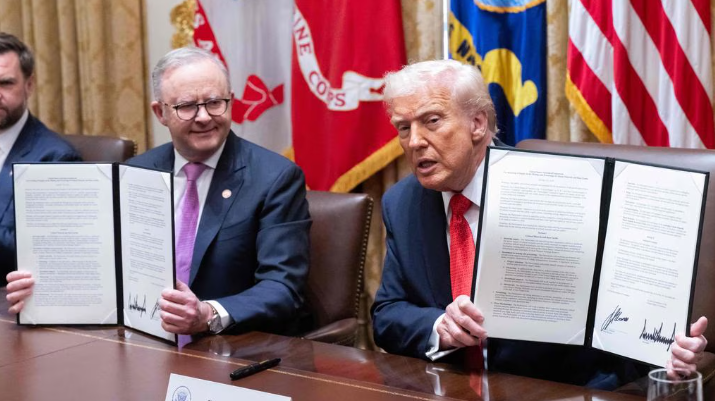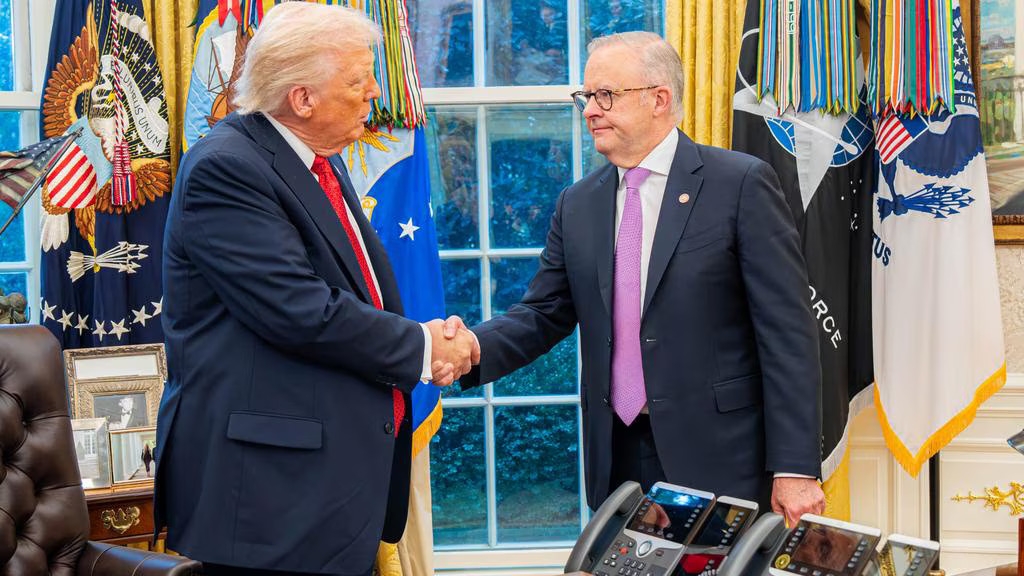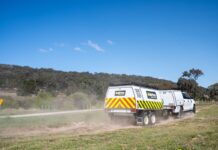Trump and Albanese sign $13b critical minerals deal

Prime Minister Anthony Albanese and US President Donald Trump have today signed a landmark bilateral framework agreement to secure critical minerals and rare earths mining and processing outside of China.
The framework will be established under the leadership of the Federal Resources Minister and the US Energy Secretary to identify priority minerals and supply vulnerabilities to develop a coordinated plan to accelerate delivery of processed minerals.
President Trump says the agreement has been in negotiations for the last five months.
“In about a year from now, we’ll have so much critical minerals and rare earths, that you won’t know what to do with them. They’ll be worth about $2b,” he said.

Prime Minister Albanese says there are no closer friends and allies than the US and Australia.
“President Trump and I agreed today we will work very hard together in both our nations’ interests. We’ve agreed today Australia and America are going to make more things together with our historic framework on critical minerals,” he said.
“Cooperation on critical minerals and rare earth supply chains is testament to the trusted partnership between Australia and the US as strategic defence allies.”
To complement the framework, the US and Australia will take measures to each provide at least $1.53b [US$1b] in investments towards a $13b [US$8.5b] pipeline of priority critical minerals projects in Australia and the US over the next six months.
Two of those priority projects have financial commitments being announced today by the Federal Government.
The first project will see the Federal Government provide $306m [US$200m] in concessional equity finance for the Alcoa-Sojitz gallium recovery project in Wagerup, WA, which includes a right of offtake for the Federal Government. The US Government is also making an equity investment with a right of offtake.
This project will provide up to 10% of total global gallium supply, a mineral essential for defence and semiconductor manufacturing. This is a trilateral project with Japan, the US and Australia with Japan already having provided 50% of the project costs to date.
The second project is the Arafura Resources (ASX: ARU) Nolans rare earths project in the Northern Territory which will receive a $153m [US$100m] equity investment from the Federal Government. Once operational, this project is set to produce 5% of global rare earths essential for energy security and defence.
Shifting China’s dominance
Earlier this year, China’s introduction of export bans and restrictions on rare earths and critical minerals triggered a series of back-and-forth trade manoeuvres from the US, exposing the vulnerability of the global supply chain and the urgency at which nations need to diversify.
The US has since funnelled investment into its domestic industry. Most notably, the US’ only fully integrated rare earths producer, MP Materials, entered a multi-billion-dollar public-private partnership with the then US Department of Defence (DoD) to build a domestic supply chain for rare earth magnets.
Australia is not exempt to the repercussions of this trade war.
As the Federal Government moved to establish a $1.2b strategic minerals reserve and major offtake agreements one thing became clear — Australia has the potential to be a significant player in the shifting global critical minerals landscape.
Australia’s rich geology, strong mining and processing capabilities combined with its reputation for reliability and transparency makes well positioned to meet the world’s growing resource demands and become a trusted partner in supply chains.
The signing of the framework between the US and Australia could be the next step to countering China’s dominance.
Minerals Council of Australia (MCA) chief executive Tania Constable says Australia’s mining sector has long championed open markets, transparent trade and strong, long-term relationships.
“This approach has built deep trust over more than 50 years with partners including the US, EU, Japan, South Korea and China,” she said.
“This [framework] is an acknowledgement of Australia’s strategically important role in the development of new technologies, defence capabilities and renewable energy infrastructure that stem from the nation’s array of critical minerals.”





















